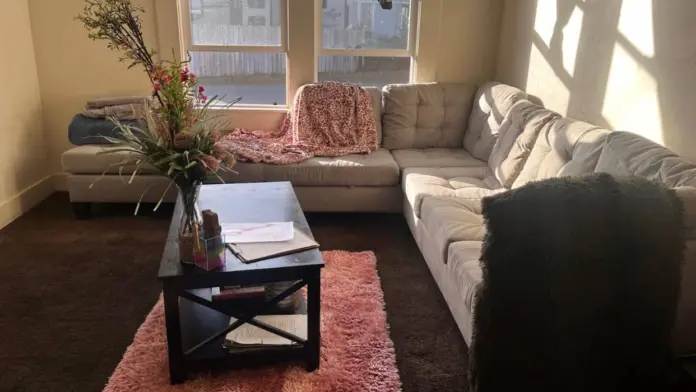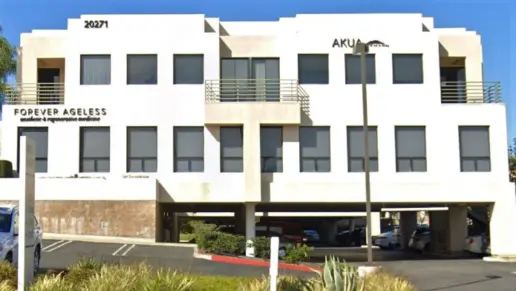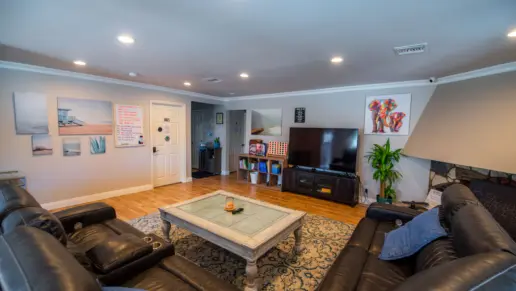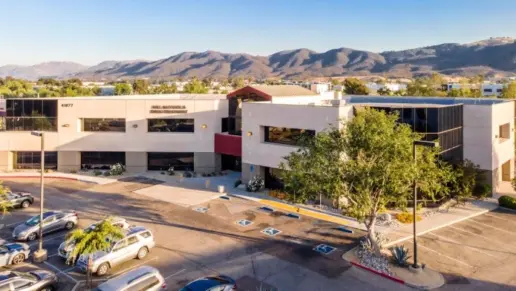About North Coast Substance Abuse Council
North Coast Substance Abuse–Crossroads is a comprehensive drug and alcohol rehab in Eureka, California. They provide dual diagnosis care, medically supervised detox, medication assisted treatment (MAT), and inpatient programs, and aftercare services. Specialized programs for seniors, young adults, postpartum women, LGBTQ+ persons, military personnel, and persons with HIV/AIDS are available. Their primary treatment modalities combine psychotherapy with recovery focused life skills training and evidence based complementary care.
North Coast Substance Abuse–Crossroads, in Eureka, California, is an integrative addiction recovery program for adults providing medication assisted treatment (MAT), medically supervised detox and inpatient programs, and aftercare services. They also offer specialized programming for young adults, military personnel, seniors, LGBTQ+ persons, persons with HIV/AIDS, and persons with co-occurring addiction and mental health disorders.
Clients undergoing detox receive round the clock medical supervision and may be prescribed FDA approved medications to ease withdrawal symptoms and prevent potentially life threatening complications.
The inpatient program at NCSA–Crossroads enables clients to focus on their recovery in a private, home like setting. Residents engage in intensive, trauma informed individual, group, and family counseling with or without MAT. They also prioritize recovery focused life skills development to support long term sobriety, including courses in coping, anger and stress management, self care, wellness, and relapse prevention. Mental health assessments, personalized treatment planning, and case management are included.
NCSA–Crossroads’ aftercare services are designed to support clients’ successful reintegration into their homes, communities, and workplaces. Referrals for outpatient and sober living programs, social services, and medical and mental healthcare are available.
North Coast Substance Abuse–Crossroads is licensed by the State of California. They accept private insurance, Medicaid, and self pay. Sliding scale payment assistance is available.
Facility Overview
Latest Reviews
Rehab Score
Gallery

Location
Other Forms of Payment
Private insurance refers to any kind of healthcare coverage that isn't from the state or federal government. This includes individual and family plans offered by an employer or purchased from the Insurance Marketplace. Every plan will have different requirements and out of pocket costs so be sure to get the full details before you start treatment.
Self-pay involves paying for treatment out of your own pocket. You can use savings or credit, get a personal loan, or receive help from family and friends to fund your treatment. If you don't have insurance or your insurance plan doesn't cover a specific program, self-pay can help ensure you still get the care you need.
Medicaid is a state based program that helps lower-income individuals and families pay for healthcare. Medicaid covers addiction treatment so those enrolled can use their coverage to pay for rehab. When a program accepts Medicaid the client often pays very little or nothing out of their own pocket.
Addiction Treatments
Levels of Care
Treatments
The goal of treatment for alcoholism is abstinence. Those with poor social support, poor motivation, or psychiatric disorders tend to relapse within a few years of treatment. For these people, success is measured by longer periods of abstinence, reduced use of alcohol, better health, and improved social functioning. Recovery and Maintenance are usually based on 12 step programs and AA meetings.
Drug rehab in California teaches participants constructive ways to stay clean and sober. Treatment revolves around helping individuals stop using the substance they are addicted to and learn healthy habits to avoid relapse.
Many of those suffering from addiction also suffer from mental or emotional illnesses like schizophrenia, bipolar disorder, depression, or anxiety disorders. Rehab and other substance abuse facilities treating those with a dual diagnosis or co-occurring disorder administer psychiatric treatment to address the person's mental health issue in addition to drug and alcohol rehabilitation.
Opioid rehabs specialize in supporting those recovering from opioid addiction. They treat those suffering from addiction to illegal opioids like heroin, as well as prescription drugs like oxycodone. These centers typically combine both physical as well as mental and emotional support to help stop addiction. Physical support often includes medical detox and subsequent medical support (including medication), and mental support includes in-depth therapy to address the underlying causes of addiction.
Substance rehabs focus on helping individuals recover from substance abuse, including alcohol and drug addiction (both illegal and prescription drugs). They often include the opportunity to engage in both individual as well as group therapy.
Programs

Clinical Services
Group therapy is any therapeutic work that happens in a group (not one-on-one). There are a number of different group therapy modalities, including support groups, experiential therapy, psycho-education, and more. Group therapy involves treatment as well as processing interaction between group members.
For clients who are struggling with ambivalence toward change, motivational interviewing in California can help strengthen their commitment to change. Using a conversational method, the therapist helps you explore your motivations and empowers you to make the changes you desire.
Contact Information
1205 Myrtle Avenue
Eureka, CA 95501


